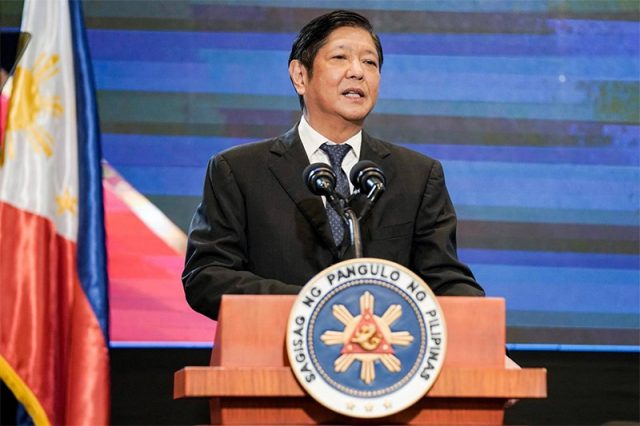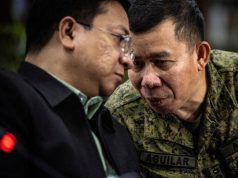
MANILA (Updated 7:52 p.m.) — The Philippines has no plans to grant the United States access to more military bases, President Ferdinand Marcos Jr said on Monday, after nearly doubling the number last year under a joint defense pact.
Beijing has previously accused the Philippines of “stoking the fire” when it increased the number of bases the U.S. military could use to nine from five, with the new sites located close to potential flashpoints.
“The answer to that is no,” Marcos said in response to a query whether the Philippines would allow the U.S. access to more bases.
“The Philippines has no plan to create any more bases or give access to any more bases,” he told a forum with foreign correspondents.
Last year Washington and Manila discussed further expanding the number of bases U.S. forces could access under the Enhanced Defense Cooperation Agreement (EDCA) from nine.
Three of the four sites faced north towards Taiwan and one was near the Spratly Islands in the South China Sea, where Manila and Beijing have had frequent maritime run-ins that included China’s use of water cannon and collision tactics.
U.S. President Joe Biden, who hosted Marcos and Japanese Prime Minister Fumio Kishida in Washington last week at a first-of-its-kind three-way summit, has asked Congress for a further $128 million for infrastructure projects at the nine EDCA sites.
The three leaders expressed “serious concerns” about China’s “dangerous and aggressive behavior” in the South China Sea, a conduit for more than $3 trillion of annual ship-borne commerce claimed by China despite overlapping claims by other countries.
The three countries’ co-operation was not “directed at anyone or against anyone”, Marcos told the forum, but was merely a strengthening of ties among them.
A deepening row between China and the Philippines has also made it challenging for the latter to explore oil and gas in the South China Sea, despite an agreement between them to resume talks about joint exploration.
“When we say that we would like to explore, they insist that these areas are in Chinese territory and therefore Chinese law must prevail,” Marcos said.
“We, of course, do not accept that. We say this is Philippine territory, and therefore, Philippine law should prevail.”
He added, “I don’t really think we have a proper agreement and it really comes down to that issue, which law should apply.”
Last year Chinese President Xi Jinping said Beijing was willing to resume talks with the Philippines for potential joint oil and gas exploration in the South China Sea.
— Reporting by Mikhail Flores and Karen Lema; Writing by Kanupriya Kapoor; Editing by John Mair and Clarence Fernandez









